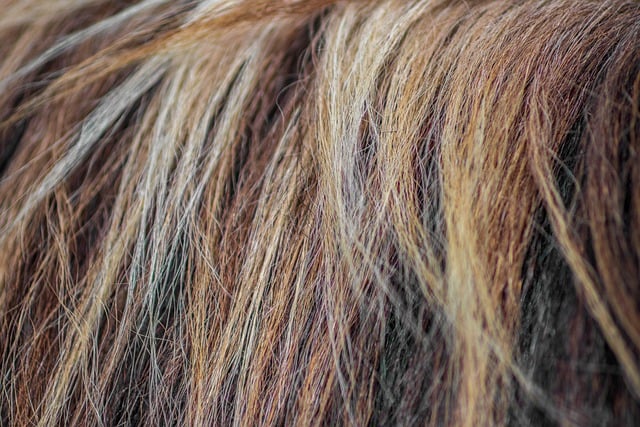We are here for Home Remedies for Hair Fall & Medical Treatment. Hair loss is a prevalent concern that affects millions of people around the world. Understanding the causes and exploring effective treatments is crucial for managing this issue. This article delves into the various medical treatments and home remedies for hair fall, helping you make informed decisions.
Introduction to Hair Loss and Its Causes
Hair loss, medically known as alopecia, can happen for a variety of reasons, including genetics, hormonal changes, medical conditions, and lifestyle factors. Common causes include male and female pattern baldness (androgenetic alopecia), stress, nutritional deficiencies, and certain medications. Identifying the underlying cause is essential for selecting the appropriate treatment.
Home Remedies for Hair Fall & Hair Fall Treatment at Home
Many people prefer natural hair fall treatment at home due to its accessibility and lack of side effects. Several hair loss treatment at home options can effectively combat hair fall:
- Hair Fall Remedies: Using ingredients like amla, fenugreek seeds, and green tea can provide effective hair fall remedies. These natural components are rich in nutrients that promote hair health and reduce hair fall.
- Hairfall Solution at Home: A simple hairfall solution at home is to create a hair mask using egg whites and yogurt. This combination nourishes the scalp and strengthens hair, reducing breakage.
- Natural Remedies for Hair Fall: Other natural remedies for hair fall include massaging the scalp with essential oils such as rosemary, lavender, and peppermint. These oils improve blood circulation and stimulate hair growth.
- Home Remedy for Dandruff and Hairfall: To address both dandruff and hair fall, a home remedy for dandruff and hairfall involves applying a mixture of lemon juice and coconut oil to the scalp. This helps in cleansing the scalp and preventing flakiness.
- Hair Fall Control Home Remedies: For effective hair fall control home remedies, consider using a rinse made from green tea or apple cider vinegar. These natural solutions help in strengthening hair roots and preventing hair fall.
Natural Remedies and DIY Treatments
Home remedies can complement medical treatments and improve hair health. Some popular natural remedies include:
- Aloe Vera: Known for its soothing properties, aloe vera can reduce scalp inflammation and promote hair growth. Applying aloe vera gel to the scalp can improve hair health and reduce dandruff.
- Coconut Oil: Rich in fatty acids, coconut oil nourishes the scalp and strengthens hair. Regular coconut oil massages can improve hair texture and prevent breakage.
- Onion Juice: High in sulfur, onion juice boosts collagen production and improves hair growth. Applying onion juice to the scalp can enhance blood circulation and promote hair growth.
Lifestyle Changes and Dietary Tips
Maintaining a healthy lifestyle is vital for preventing hair fall. Some tips include:
- Balanced Diet: Ensure your diet is rich in vitamins and minerals essential for hair health, such as biotin, zinc, and iron. Foods like eggs, nuts, and leafy greens are excellent sources of these nutrients.
- Regular Exercise: Exercise improves blood circulation, ensuring that hair follicles receive adequate nutrients. Incorporating physical activity into your routine can support overall health and hair growth.
- Stress Management: Practices like yoga, meditation, and deep breathing can reduce stress, a common cause of hair loss. Managing stress through relaxation techniques can prevent stress-induced hair fall.
Preventive Measures
Taking preventive measures can help maintain healthy hair and reduce the risk of hair fall:
- Gentle Hair Care: Avoid harsh treatments and heat styling. Use a mild shampoo and conditioner suitable for your hair type. Limiting the use of hair dryers, straighteners, and curling irons can prevent hair damage.
- Proper Hydration: Drink plenty of water to keep your scalp and hair hydrated. Staying hydrated supports overall health and contributes to healthy hair.
- Regular Scalp Massage: Massaging the scalp stimulates blood flow and can promote hair growth. Using essential oils like rosemary or lavender during scalp massages can enhance the benefits.
Medical Treatments for Hair Loss
Hair Growth Serum
Hair growth serums are topical treatments designed to stimulate hair follicles and promote growth. These serums often contain ingredients like minoxidil, which is FDA-approved for treating hair loss. Minoxidil can help increase hair density and reduce shedding when used consistently. Applying the serum as directed can lead to noticeable improvements over time.
Finasteride 1mg
Finasteride, available in a 1mg dosage, is an oral medication that inhibits the production of dihydrotestosterone (DHT), a hormone linked to hair loss. It is commonly prescribed for male pattern baldness. While effective, it may cause side effects such as decreased libido and should be used under medical supervision. Discussing the potential risks and benefits with a healthcare provider is essential before starting finasteride.
DHT Blockers
DHT blockers are treatments that prevent DHT from binding to hair follicles, thereby slowing or stopping hair loss. These can be found in both oral and topical forms. Popular DHT blockers include finasteride and certain shampoos containing ketoconazole. Regular use of DHT blockers can help maintain hair density and prevent further hair loss.
Professional Help
Hair Doctor Near Me
Finding a qualified hair doctor or dermatologist is crucial for personalized treatment. They can diagnose the cause of hair loss and recommend effective treatments. Websites and online directories can help locate reputable professionals nearby. Scheduling a consultation with a hair specialist can provide insights into your specific condition and tailored treatment options.
Trichologist Near Me
Trichologists specialize in hair and scalp health. They provide non-medical advice and treatments for hair loss, often complementing the care provided by dermatologists. Searching for trichologists in your area can offer additional support in managing hair health. Trichologists can recommend suitable hair care routines and products to improve hair strength and growth.
Hair Clinic Near Me
Hair clinics offer comprehensive services, including medical treatments, hair transplants, and cosmetic solutions. Visiting a hair clinic can provide access to advanced treatments and experienced professionals who can tailor a plan to your needs. Hair clinics often offer a range of treatments from non-invasive procedures to surgical options, ensuring a comprehensive approach to hair restoration.
Best Hair Growth Products
Best Hair Growth Serum
Choosing the right hair growth serum can make a significant difference. Top recommendations often include serums with minoxidil or natural ingredients like biotin and peptides. Reviews and ratings from other users can guide you in selecting the most effective product. Products such as Rogaine and Nutrafol have gained popularity due to their positive results in promoting hair growth and reducing hair fall.
Alopecia Treatment Options
Alopecia encompasses various types of hair loss, including androgenetic alopecia (pattern baldness), alopecia areata (patchy hair loss), and telogen effluvium (stress-induced hair loss). Treatment options vary depending on the type:
- Androgenetic Alopecia: Treatments include minoxidil, finasteride, and hair transplant surgery. These treatments aim to reduce hair loss and stimulate hair regrowth by targeting the underlying hormonal causes.
- Alopecia Areata Treatment: Steroid injections, topical immunotherapy, and oral corticosteroids are common treatments. These therapies help to reduce inflammation and promote hair regrowth in the affected areas.
- Telogen Effluvium: Addressing the underlying cause, such as stress or nutritional deficiencies, often resolves this type of hair loss. Improving overall health and managing stress levels can lead to natural hair regrowth over time.
Conclusion
Hair loss can be distressing, but numerous medical treatments and home remedies for hairfall are available to manage it effectively. By understanding the causes and exploring various options, you can take proactive steps toward maintaining healthy hair. If you experience significant hair loss, consult a professional to determine the best treatment plan for your needs. Combining medical treatments, professional advice, and home remedies can provide a comprehensive approach to hair loss management, helping you achieve and maintain healthy hair.







Recent Comments